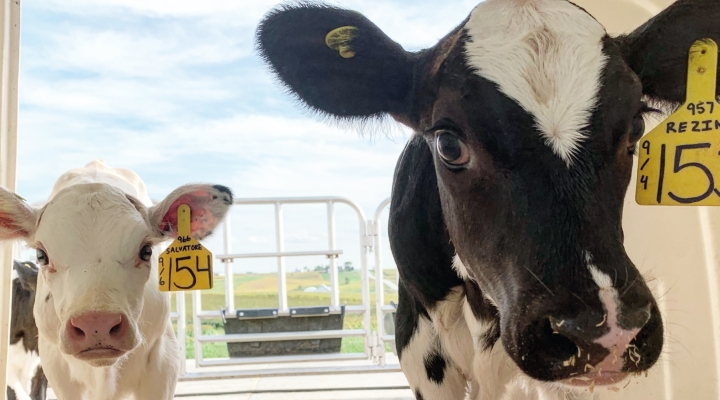CHAMBERSBURG, Pa. — As any dairy farmer knows, calf raising is an area of the farm that seems to constantly change. Once one system seems to be working, a cool, wet fall rolls around and everything changes! While we can all agree that there are numerous ways to raise calves, they should all have the same goal: to raise healthy calves that will turn into productive replacements. One aspect of calf raising that varies between farms is the number of calves that get housed together. While most farms still raise calves individually, there is a trend taking steam in other countries to pair raise dairy calves for a multitude of reasons. Whether you are raising calves in pairs, raising calves in group housing, or considering one of these options, I encourage you to register for Penn State’s webinar series on socially raised calves happening now.
The webinars in this series will occur on Thursday Oct. 12 and Thursday, Nov. 16 at 12 p.m. The webinar on Thursday Dec 7 will start at 1 p.m.. Registration is required to receive the links to access the webinars, and only registrants will receive access to the webinar recording. Cost for each webinar is $10.00.
Group housing will be the focus of the webinar on Thursday Oct 12. Facilities that house grouped calves play a significant role in their health and well-being. Ag Engineers Dan McFarland and John Tyson will discuss what needs to be considered when adopting group housing for dairy calves. To register for this webinar, please visit https://extension.psu.edu/socially-raised-calves-group-housing.
Next, on Thursday Nov 16 the focus will be on automated feeding systems. Melissa Cantor will cover milk feeding strategies, types of automated feeding systems, examples of successful milk programs, and ways to manage disease and maximize the use of automated feeder data to manage dairy calves. Cantor will also cover how to transition calves fed high milk allotments to grain, how to wean them, how to avoid post weaning growth slumps, and more. Finally, Cantor will also provide tips and tricks for acclimating calves to learn the feeder in a timely manner, the management of scours, and disbudding calves in this type of system. Registration is available for this webinar at https://extension.psu.edu/socially-raised-calves-automated-feeding-systems.
In the final webinar of this series on Thursday Dec 7, Dr. Hayley Springer will be discussing feeding acidified milk to dairy calves. Some of the topics of focus will be practicing good Biosecurity, the ways to effectively offer acidified milk, the benefits, and disadvantages of this process, and more. The link to register for this webinar will be available soon. With help registering or any additional questions, please contact Cassie Yost at [email protected] or by calling 814-643-1660. We look forward to you joining us for this webinar series on socially raised dairy calves.
–Cassie Yost, Penn State Extension







